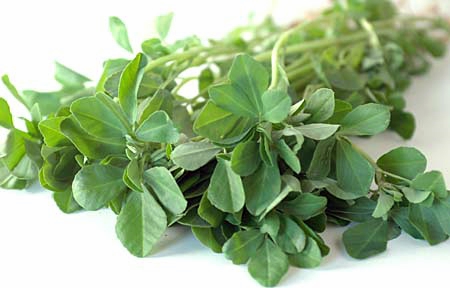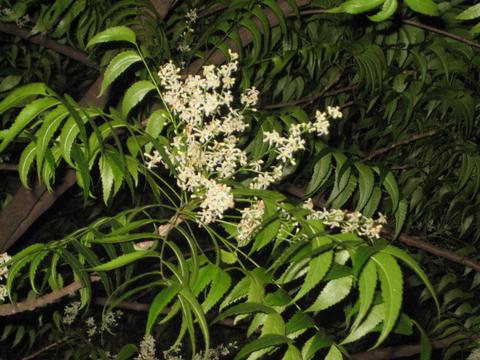
The importance of detoxification is something which is well known, but not always well accepted. In the East, balancing and detoxifying the body has been central to medicine for quite some time. However, its importance is something which is a somewhat newer concept in the West. In essence, detoxification is a very simple idea; just as the name suggests - it is the process of improving your wellbeing by getting rid of toxins and other poisonous substances, from your body. Modern science now believes that the cause of degeneration, decay and premature aging lies in free radicals in the body. According to this theory, accumulation of toxins in our bodies creates free radicals.
With today’s hectic lifestyle and world of competition, stress has become a part of our lives. Irregularity in dietary habits, excessive intake of junk food and pollution are a few things we keep complaining about but cannot do much about from a wholesome perspective. All these things inevitably result in the accumulation of toxins at a cellular level.
The human body is made up of several types of tissues, be it blood, bone, adipose, nerve, among others. Free radicals formed in the body owing to the toxins if not neutralized by anti-oxidants or eliminated from the body tend to accumulate and damage the cell wall and eventually the tissue itself. Here lies the importance of removing toxins from the body sooner rather than later.
Since the accumulation of toxins takes place all the time, it is necessary to find a way to rid the body of these toxins and restore the cells to their normal functioning. It is necessary to reverse this cascading effect of damaged molecules failing which this can result in various health disorders and life threatening diseases in the longer run. In fact, most of the degenerative diseases such as hypertension, arthritis, diabetes, and immunity disorders, strokes, arteriosclerosis as well as heart ailments can be traced to this sole reason.
Ayurveda has long understood the significance of cleansing the body of all types of toxins. Therefore, it suggests the cleansing process through 'Panchakarma' to eliminate all the undesirable toxins from the body. It involves various detoxification processes. Baidyanath Life Sciences has introduced detoxification for the citizens of Nagpur keeping their lifestyle in mind. Hence, the entire process is suggested for 8, 11 or 15 days, with the patient having the option of increasing the duration as well. The process includes special Ayurvedic massages, a herbal steam, nasal administration, and Ayurvedic Basti and Shirodhara. All processes are done under expert supervision and with customized decoction of herbs just for the patient.
Ayurveda believes that “a healthy being is one whose body and mind both are healthy”; hence the schience prescribes a combination of relaxing massages with Shirodhara and Nasya to keep the mind healthy and allow it to overcome stress and be rid of mental tensions.
An Ayurvedic detox diet is also recommended during the process, which emphasizes on decreasing the intake of potentially harmful chemicals and increasing foods that aid the body in its cleansing. When toxins are cleared from the body, it leads to higher energy levels, improved digestion and concentration. It also helps the medicines give better effects to a body that is well cleansed.
Yet, various myths about Detoxification abound leading to its reluctance in acceptance and practice.
Fact: Quite contrarily, it is one of the easiest methods of thorough cleansing. Co-operate well with the experts during your detox procedure and be aware of how wonderfully easy it is. It should take around 8-12 days to cleanse your body completely after several years of damage.
Myth: Detoxification is painful.
Fact: Since detoxification usually includes Basti, people feel that it might be painful. However, that is not the case. It is a completely painless procedure if carried out under experts and in a clean environment with proper disposables.
Myth: You feel lethargic after a Detox session.
Fact: In the first few days of Detox, some people do feel tired and lower in energy. This feeling of tiredness is due to the toxins being eliminated from the system but lasts only for 1-2 days. The results of detoxification are very rewarding in contrast. You will gain control over your own body and feel more energetic and fresh.
Myth: It is habit forming.
Fact: People who are going through detoxification for weeks did not take even a day to leave it or live without it. The only reason why people like to detox often, is because they feel a different kind of energy within. It is always advisable to use natural detox solutions under the guidance of expert doctors.
Myth: Detoxification weakens the Intestines.
Fact: It never weakens the intestine and rectum; instead it rationally activates and strengthens them. Special authentic herbs are used which help strengthening the intestine, hence aiding in proper digestion and bowel movements.

• When one wants to increase the immunity of the body.
• When under stress or cases of depression or insomnia.
• When you feel lethargic all the time.
• When leading hectic and busy lives.
• For obesity; when you want to increase your metabolism rate.
• When you eat out a lot or have junk food or eat at erratic hours.
• Body feels stiff all the time.
• When working capacity reduces.
• Concentration level decreases.
• Fall in sexual drive, virility and vitality.
This blog is powered by Baidyanath Life Sciences, who bring about authentic Ayurvedic wellness treatments through its centres in Nagpur. Contact us at (0712) 2551413/(0712) 2440020 to schedule an appointment











.jpg)


